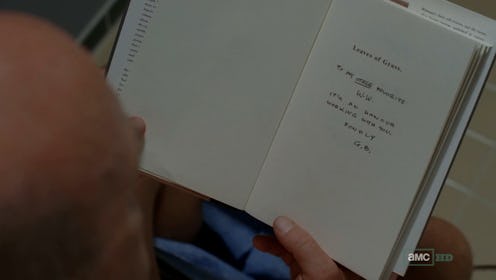Entertainment
Does TV Really Have the Best Antiheroes?

Antiheroes. They’ve been getting more and more popular on TV in recent years, starting with Tony Soprano and continuing up through Don Draper, Walter White, and the entire cast of Game of Thrones. And I’m sure we have not seen the last of them, either. The rise of the antihero has been celebrated by fans and critics alike. And don’t get me wrong, I’m a major fan of this trend. But as I watch television while surrounded by piles and piles of read and unread books, I find myself a bit bemused. Are antiheroes really so remarkable?
An antihero is a main character who possesses few, if any, moral or heroic qualities. And maybe I’ve just been hallucinating a lot of the books I’ve read, but that sort of thing has been happening in novels for a very long time. In fact, the word antihero was first used in 1714 to refer to literary characters such as Don Quixote. And since Don Quixote is the titular character of the world’s first modern novel, I’m going to just go ahead and say that antiheroes have been part of literature since the beginning.
And they’ve continued to be ever since. From modern classics like The Stranger to politically charged novels like The Grass is Singing to zany thrill rides like Fear and Loathing in Las Vegas, there are lots of reprehensible protagonists in literature. Even children’s books have them (Artemis Fowl, anyone?) And it’s not considered remarkable. Antiheroes aren’t the majority of all protagonists, certainly, but no one makes such a big deal out of the simple fact that, for instance, Dorian Gray is an awful person.
Even more interesting, though, it’s not always so easy to tell which novels have antiheroes. For many, you can argue both sides. Is Milkman from Song of Solomon an antihero? Is Holden Caulfield? Is Gatsby?
In some ways, books have a longer history of antiheroes simply because they’ve had a longer history. Television, after all, has only been around for about 60 years, and it understandably took a while to reach a level of sophistication necessary to do unsympathetic main characters justice.
But in many ways, books are more suited to the complex task, simply because they provide so much more potential access to a character’s internality. It’s easy to make a character like Kerouac (I mean Sal) from On the Road seem like much more than his crazed, careless actions would suggest, to actually turn him into a likeable character simply by showing us his wild and wondrous internal life.
In other words, books not only have antiheroes, they blur the lines between antiheroes and regular protagonists.
Will television ever get to the point where they can do the same? I’m hopeful that they will, and in their own unique ways. Whereas in books readers see the characters’ internal lives through narration, television might experiment with techniques like breaking the fourth wall the way House of Cards does. Plus, they can and are making use of the incredible actors now drawn to increasingly intriguing TV shows.
But the fact remains: books did antiheroes first, and still do them best. So if you’re mourning the end of Walter White, don’t mourn long. Go pick up A Clockwork Orange and you’ll be right at home.
Image: AMC